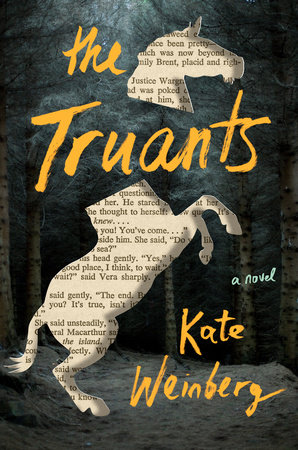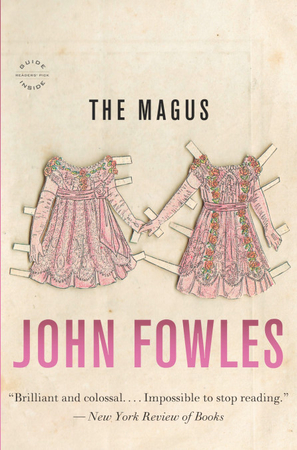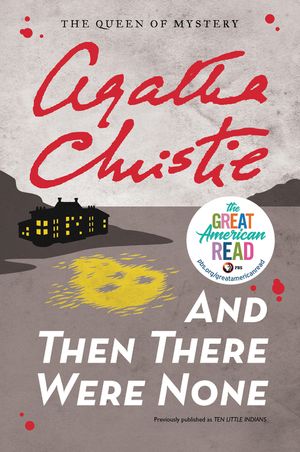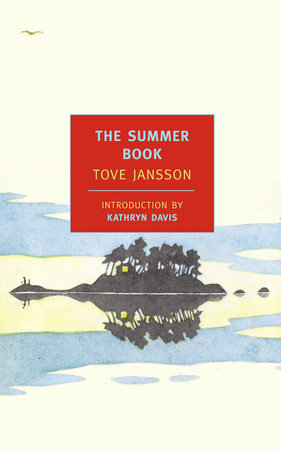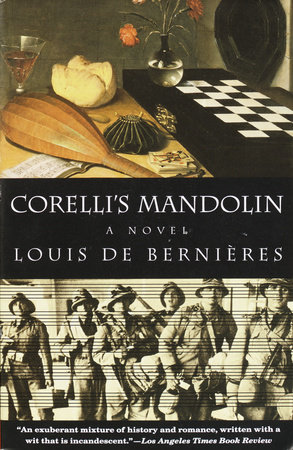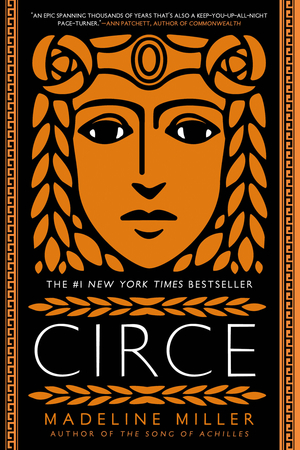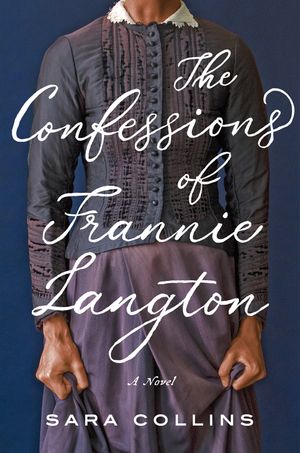The next editor of the university newspaper was chosen each year by a panel made up of the current editor, deputy-editor, managing editor, news editor and cultural editor of the paper, the current president of the Students’ Union and his or her press officer, the current president of the Journalism Society, plus any number of undeclared presences. No formal applications were invited. The criteria, if they existed, were undisclosed. Nominations would be made at the start of Trinity term, and by the end of it someone would be anointed. There was a rumour that the favourite would be whoever delivered the best story in that narrow window, and looking back through the archive it was possible to see that the appointment was more often than not preceded by a scoop.
Claire thought a lot about this. It was silly, obviously. It was just a student newspaper. She knew that. At the same time, they were encouraged to take things seriously here. And Claire was good; she’d be a good editor. She believed totally in the paper’s ethos, which was a kind of piratical liberalism – anti-capital, anti-Israel, pro-legalisation, pro-choice – though conservative tastes were tolerated on the arts pages. There had never been a female editor before.
‘One guy,’ she told her mother on the phone, ‘one guy wrote this story about how two of the colleges employed a contractor who donates to the BNP to build their new halls. The colleges tried to pretend they hadn’t known about it, but this guy showed that they must have known. He’s on staff at the Independent now.’
‘Oh, the Independent,’ said her mother. ‘They’d like that kind of thing.’
The nominations were announced with Canada goose feathers: Claire found one stapled to her name on the newsroom wall after Easter. She took the feather down as if it were an eagle’s pinion, not something dropped from the dirty backside of one of the geese now so populous on the riverside that they were not in any sense exotic, as they must have been when the tradition began. Ben, the editor, put his hands on her shoulders and shook her very firmly. Others clapped who had hoped to be tipped themselves. Duncan was one.
‘Sorry,’ she said, in the Queen’s Head afterwards. ‘Why’re you sorry?’ he said. ‘They’re the ones who should be sorry. Stuck-up bastard cunts. I think I might finally’ve had enough of this place.’
Duncan was from Stoke-on-Trent, and Claire loved him a little bit, although she couldn’t tell whether this was because of who he was, intrinsically, or because they had spent so much time together, working on proofs or essays until 2 a.m. in Duncan’s room, him at the desk and Claire curled on his single bed, eventually falling asleep there rather than set out on the long walk back to the centre.
Duncan was reading History. Claire was reading English. Neither was happy to say they were ‘reading’ any subject at all, but while Claire gritted her teeth and saw it through, Duncan’s bitter discomfort made him generate countless alternatives, all equally absurd.
‘I’m knowing History,’ he’d say, in his cattiest voice. ‘What are you knowing?’
Claire, catching on, would say, ‘I’m knowing English.’
‘Oh, how marvellous,’ he would reply.
They had met at the freshers’ fair, signing up for the paper. Duncan wore black skinny jeans that made his legs look like liquorice sticks, and a navy wool duffel coat with huge pockets. His skin was bad, his hair unwashed; he looked dirty and sullen and proud, as if he had just survived six months at sea. When she’d said this to him later, in a moment of drunken exuberant disburdening, he’d said, ‘No, you’re thinking of a reefer jacket.’
Claire had borrowed that coat innumerable times, and even fallen asleep on it. It was scratchy, and it smelled of damp tobacco. The pockets had holes in the corners that coins dropped through – you could feel them around the hem, like tiny weights.
She set about trying to find a story, the right story, but her only idea was college catering: kitchen wastage; unfairly tendered contracts with suppliers; the astonishing predominance of processed carbohydrates in students’ meals. Subpar nourishment for over-par brains! It was ridiculous. She complained one morning to June, the scout for the building, when June came to clean Claire’s room and found her listless and afraid.
‘Oh, I could tell you some things about this place,’ June said breezily. She had violet-coloured pouches beneath her eyes, and hair that did not seem to be subject to gravity at all, that floated around her face like a puff of seed.
‘Like what?’ Claire asked. Other girls in the building didn’t talk to June much, but Claire found it easy. June was like her aunties; she was like the women who’d worked in the offices at her school, where half the buildings were prefabricated, like builders’ huts. There was a kind of ease between them that Claire felt proud of being able to create.
‘Like you wouldn’t believe,’ June said. ‘Bursars stealing then buggering off. Shahs getting their kids in without the proper qualifications, just talking to the principal and making a big donation the same year. The roof on this building came from a shah!’
‘How d’you know?’
‘His daughter told me. She had the room down the hall. Never picked up her clothes neither, never did a damn thing, and then she used to lie there while I was hoovering and watch. Lovely eyes. She used all that eyeliner, like they do.
‘That’s amazing,’ Claire said. Imagine! She would have to go digging into the donors’ list, and then she’d have to cross-reference it with the alumni roll, and even then it might not be clear.
‘Once there was this amateur cricket club over from – I don’t know where, Malaysia or something . . .’
Might there be something about the new roof in the college newsletter? It was exactly the kind of thing they’d want to boast about.
‘. . . then it was later that day, I was in cleaning the loos upstairs, and he just appeared in the doorway.’
‘Who did?’
‘This chap I’d turned down. He’d got his cricket whites on, and there were these big green grass stains all down his front, right down to his knees. He was just standing there, watching me clean.’
Claire felt a prickling along her arms.
‘I didn’t know what he wanted at first, but I knew it wasn’t right, something wasn’t right. He was blocking the doorway. So I just said, oh, hello, how are you, then I tried to go past him, but maybe that was what he wanted. He got me up against the wall, you know, by the throat.’
‘What did you do?’
‘Well, I just thought, that’s it, I’m going to be strangled by a Malaysian chap in the loos! Then he – you know, he did what he wanted to do, I suppose. Then somebody came past at one point, and he let go a bit, and I got away from him and ran downstairs and went straight over to the lodge, looking for my manager, you know. He was sitting in there eating this big plate of chips from the canteen. I told him what had happened and he said, that’s terrible, June, but you do know the cricketers are going home tomorrow, don’t you? So you won’t have to see him again.’
She laughed in a bewildered sort of way, and started emptying Claire’s bin.
‘But June,’ Claire said. ‘That’s horrendous.’
‘Oh, I know it is, I know, but what can you do?’
‘I don’t know, but there has to be something. Nothing was done? Really nothing at all?’
Oh no, June said, nothing ever got done. It was just the job, wasn’t it? And other things happened to other scouts in other colleges. Abuse from the students: things thrown at them, or horrible things left in the rooms for them to find. Assaults by the students, too. Sexual assaults. Exposing themselves. But that all got hushed up.
‘I don’t know,’ she said. ‘Maybe that’s just how it has to be. They’re just young lads, after all, aren’t they? They don’t really know what they’re doing.’
Claire felt dizzy, dazzled with unfairness. June carried on talking for the both of them. Anyway, she was saying, most of them weren’t like that, most of them were good as gold. Chocolates at the end of the term, sometimes, and a thank-you card. Once in a while, some of them even came back for a visit. She’d had one lad who’d called her Second Mum. That was before she moved to the women’s college, of course. Girls didn’t tend to do that sort of thing. They were much more reserved. She missed the lads sometimes. You couldn’t really wish a criminal record on them, could you? Not at that age.
When June busied off down the corridor, Claire typed up everything she could remember of the conversation, of June’s form of words. She didn’t put June’s name on it. She didn’t know if June would want to be named. She’d have to find that out. Her mind was swarming. Imagine breaking this! Oh, and she was angry, she was angry too, on June’s behalf and all the other scouts’ behalves – but she had to focus.
She opened a new document and began to draft the story. Should it be about the incident itself and the college’s failure to investigate? Or should it be bigger, wider – endemic sexual assault, fear of constructive dismissal? Excitement carried her a long way, through the next hour or two. It would go national, surely. There was an insatiable appetite for stories about the university in the national press, especially with sexual assault in the mix. And what happened to June had been serious. It had maybe been – probably – rape. But lack of attribution or corroboration: that could be a problem.
She phoned Duncan. ‘How well do you get on with your scout?’ There was a rustling sound, a groan. ‘You’re still in bed, aren’t you?’
‘I am resting,’ Duncan said. His voice was muffled. ‘I fucking hate that word.’ He meant scout. Claire hated it too, if she thought about it. As if the cleaners weren’t employed, were just gleeful volunteers, overgrown children, who cleaned toilets for nothing more than the privilege of attaining little coloured badges of experience to sew on to their overalls. And yet there was something appealing about it, too. The term scout was itself a little badge, one that Claire had been proud to collect.
‘I know,’ she said, ‘I know, but can I talk to her?’
‘Is this for your article? You’ve gone off catering and now you’re on cleaning?’
‘Something like that,’ she said, cagily. Duncan’s scout was Duncan’s, after all.
Irina was a morose polish girl with no shoulders and a tiny gold cross in her clavicle notch.
‘I don’t know nothing about that,’ she said, emptying Duncan’s bin of chocolate wrappers and tinfoil from the kebab van, the orange grease clinging to it. She tutted. ‘Rubbish you eat!’
‘Claire was gonna to write something about that, weren’t you? About all the rubbish we eat round here.’
‘Yes! These students don’t eat no vegetables, they don’t drink no water, it’s all kebabs and chocolate and beer, all the time. It’s crazy. Why do you want to come here to work so hard and feed your brains with all that rubbish? This is what you should write.’
‘But Irina, these other stories, you haven’t heard anything like that?’
Irina snorted. ‘Of course. If it’s men, if it’s women’ – she made a strange gesture with her left hand – ‘that’s what happens.’
‘Has it happened to you?’
‘They tried, but I’m not having none of that.’
‘Who tried?’
‘Why’m I gonna tell you that? I’m not gonna tell you that. This is my job. You think they go after the students who pays them nine-thousand pound a year? No, they go after me, they get rid of me. And there’s nobody else gonna talk to you about this, either.’
‘Actually, someone has.’
She felt Duncan look sharply at her, and ignored him.
Irina’s small mouth twisted and released a contemptuous laugh. ‘What idiot’s gonna talk to you about that?’ She turned to Duncan. ‘You got any more rubbish in here?’ And when he said no, she left, abruptly, with the transparent sac spinning by one stretched handle from her thumb.
Duncan was still looking at Claire. ‘She hasn’t given you permission, has she? Whoever she is.’
Claire approached other scouts at her college the next day, but found them unwilling even to chat about ordinary things. The story sat open on her laptop, unattributed, glowing with power. It distracted her from Measure for Measure so much that she had to write her essay before she’d finished reading the text. She expected the tutor to humiliate her for this, but he seemed half-asleep, and in fact only corrected her very mildly on a few points, as if he’d never anticipated anything better from her. She trudged back to her building, past the girls lying out on the lawns. The pages of their magazines glistened in the grass; their hair fell forward around their faces, and she could almost smell their shampoo: coconut and synthetic apples.
She got herself a Diet Coke, and as it clunked out of the vending machine she saw June pass by with her cleaning kit, humming to herself. She followed her upstairs to the communal kitchen, and found her cleaning the hobs.
‘I still can’t believe it,’ Claire said, watching June closely. ‘What happened to you.’
‘Oh, don’t be silly,’ June replied. She had reached a tough bit of something unidentifiable, once onion, perhaps, now blackened, oily and welded to the burner, and she was having to press down on her knot of steel wool with both hands to try and dislodge it. The effort seemed immense. Claire started forward, as if to help, just as the clot gave way.
‘Look at that.’ June pinched it between her yellow-gloved fingertips and held it up as if it was a dead spider. ‘That’s been cooked about six times, that has. It’s their noodles. Honestly, they wouldn’t ever think to clean up.’
By ‘they’, she meant the Chinese students, who always fed themselves in teams of four or six, filling the whole kitchen with steaming pans. Anything that looked like a noodle June attributed to them, though Claire had never once seen them cook noodles: they seemed to favour packets of ready-made tortellini and ravioli, which they boiled up and covered in butter and Parmesan and ate with forks at the communal table. June’s casual racism had not bothered Claire the other day, when June mentioned the shah’s daughter. It had seemed like something speaking through her, not something she had chosen for herself. But first the shah, then the Malaysian chap, now this: June was othering them – and openly, too. Did she imagine that she and Claire had this in common?
‘The rest of the girls were just like you,’ June said, talking on regardless. ‘All cross and saying I ought to do something. But you think that when it’s someone else, don’t you? You think it was probably worse than it was.’
‘What if they come back? What if he does it to someone else?’
‘Oh, they haven’t been back for years. They won’t be back now, I don’t think.’
She had started cleaning the sink. The hot water ran hard against the stainless steel.
‘I think that’s a bit irresponsible, actually,’ Claire cried, above the tropical noise. ‘Have you seen the college articles? They’re very clear about sexual misconduct.’
June pressed her hand against her side, as if she were climbing a hill and had got a stitch. She turned off the tap. ‘This plughole’s blocked. I’d better get the thingamajig.’
Claire waited, inspecting the sink, which didn’t seem blocked at all. The water drained; she saw her face in the bottom, a pink smear. Arguments came to her: that women have a responsibility to each other speak up when it counts; that June’s coming forward, in whatever form, might be exactly what someone else needed to hear. But all she could see was June’s puff ball hair blowing this way and that, never settling, never touching down, catching the breeze and tumbling June sideways out of the room.
Really, it was more than racism speaking through her. It was sexism too, it was all kinds of ingrained obliviousnesses, ones Claire didn’t have time to correct. The story would wriggle away from her. It would jump, like an unhooked fish, and nobody, nobody, was ever going to catch it again, because June – she could tell – had scared herself, or Claire had scared June with how seriously she had taken her allegations.
Then why did she tell me? She thought, angrily. Why did she tell me at all? And it occurred to her that maybe, as far as June was concerned, she’d done her part. Who was to say she’d not already given her permission as she understood it? Maybe she thought Claire was pestering her to append her name to the piece, or to identify the man. Maybe she wanted Claire to go and write the damn thing regardless, with minimal contact, so that June could later deny responsibility for it, like a real confidential informant. She had told Claire, after all. She must have known what Claire was doing.
For a moment it seemed to Claire that she, herself, might even be part of the problem. It was a thought she did not enjoy: it seemed almost to encroach upon her space, like someone unwanted, a drunk, sitting beside you on a train. She left the Coke on the counter and went back to her room. The only way out was to jump, the way June had jumped in telling Claire the truth. Then they would be standing on the other side of the decision, and things would look different there. She just had to send the email – so she did.
She had a long shower that stayed hot all the way through, that beat her skin till it pinked and glowed. Journalists shouldn’t expect to be liked. Duncan had told her that. Back in her room, she texted him: Drink? The building was terribly quiet, and she dived on her phone when it rang.
‘Claire, it’s Ben! Is this real?’ He was shouting against a hundred voices that seemed to be ramming themselves down the phone. He was where life was. That was the sound of life. ‘It’s fucking amazing. Are you around? We’re at the Union. Can you come down?’
Yes, she said, she’d go, she’d be there soon. Still no word from Duncan. She texted him again: Going to the Union. C u there? He wouldn’t come. He didn’t like the Union. Too many sherry-sippers. Too much black tie and coke in the toilets and chalets in Megève. It bothered him, he said, it being called the Union when it was the total exact fucking opposite of what that word meant, and for a long time she’d avoided it, wanting Duncan’s approval. Now she wanted Ben to greet her approvingly, too, like a prospect; like an equal. She wanted him to say her story was fucking amazing to her face. And even once it came out, once Duncan stopped talking to her altogether, once June stopped coming to work and another scout took over, and Claire returned from a tutorial one day to find her bed full of rubbish, actual rubbish, wet and stinking orange peels and yoghurt pots and clumped spaghetti in tomato sauce and the chewed end of a kebab, and she had to bundle it all up inside the sheet and carry it to the kitchen, a disgusting baby – even then, she knew that she wanted these things.
Image © Nasrullah Taha
The post A Source appeared first on Granta.
 Pop quiz: What’s more important—characters or story?
Pop quiz: What’s more important—characters or story? When you take this online writing course, you will learn how to create believable fiction characters and construct scenes with emotional depth and range. Create characters readers will love and develop a strong point of view for your fiction book today!
When you take this online writing course, you will learn how to create believable fiction characters and construct scenes with emotional depth and range. Create characters readers will love and develop a strong point of view for your fiction book today!




